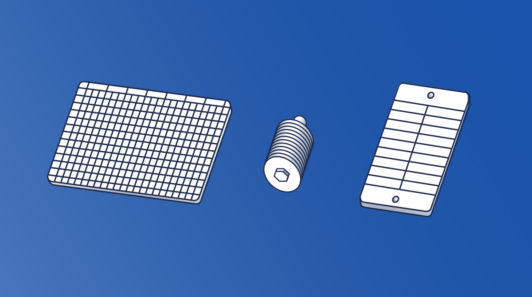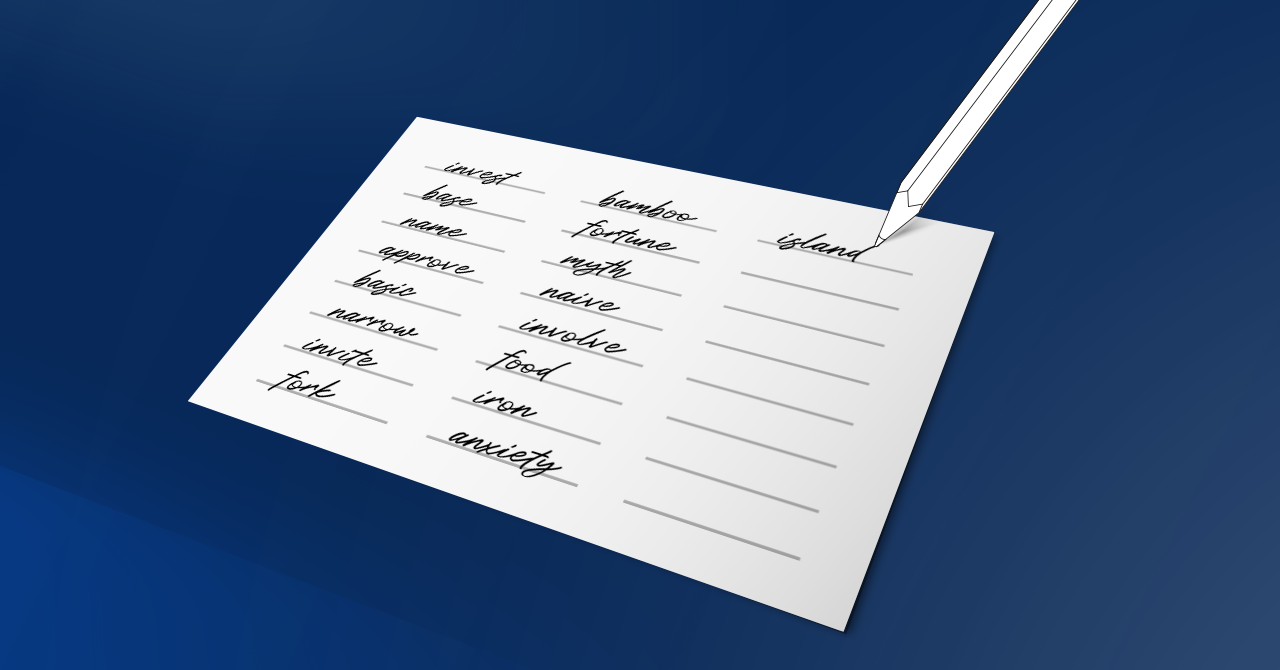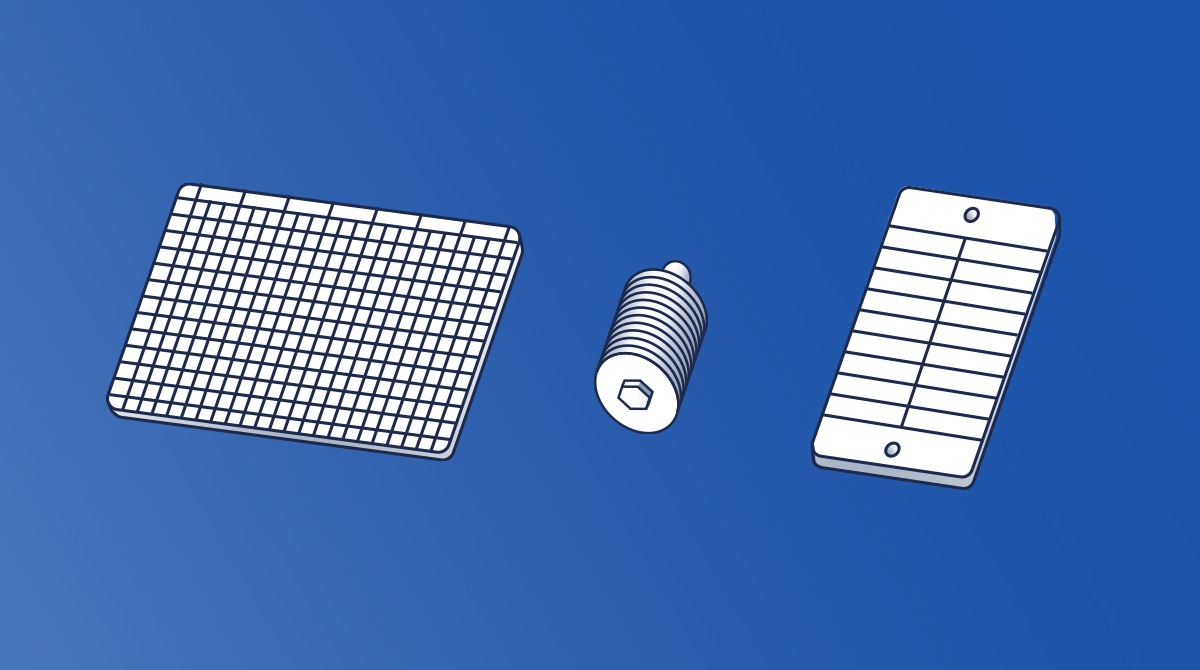How does the bitcoin source code define its 21 million cap?
Many of bitcoin’s staunchest critics have expressed doubt about its 21 million cap, but perhaps the most mindless criticism relates…
,
If you’ve ever set up a bitcoin wallet, you should be familiar with a 12- or 24-word seed phrase (otherwise known as a seed backup, recovery phrase, seed words, mnemonic phrase, secret words, backup, or many other names). As we covered in our overview of seed phrases, these words generate the keys that allow you to spend your bitcoin. They’re of critical importance in bitcoin custody, so how you record them is also essential to ensure your bitcoin remain yours—and survive through generations!
Before we look at how to best record your seed phrases, it’s key to understand that not all of them are created equal. In this article, we’re talking about a 12- or 24-word seed phrase generated using the BIP39 standard native to the bitcoin protocol. Not all wallets use this standard, but we recommend you always use BIP39-supporting hardware and software wallets in order to maximize the security and recoverability of your funds over time.

Many software wallets support BIP39 seed phrases, and we’re particularly fond of non-custodial software wallets like BlueWallet, Blockstream Green, Breez, and others. As for hardware wallets, those from the most popular makers like Trezor, Ledger, or Coldcard are suitable picks. You can also check out WalletsRecovery for a complete list of BIP39-supporting hardware wallets.
Storing your seed phrase is just about preserving a list of words, so there are theoretically infinite ways to approach this. Below we’ll take a look at a couple of seed phrase recording methods that are considered good practice in bitcoin self-custody, but first, we’ll explore a few others that…well, aren’t. We’ll cover where to put these recorded seed phrases in another article.
One approach that some people take is not recording their seed phrase at all—commonly called a brain wallet. A brain wallet is simply memorizing your seed phrase.
There are some significant concerns with doing this, and it’s certainly not a practice that we ever recommend. For most people, it’s nothing more than making their own body a single point of failure, which will put their bitcoin in jeopardy in the case of an accident or medical issues.
While there may be edge cases where it makes sense to do this (such as a refugee escaping an authoritarian regime at the threat of property confiscation), you should always treat bitcoin as intergenerational wealth. Storing your seed phrase in your brain doesn’t help you accomplish this; in fact, it ensures that your bitcoin will leave with you. Some may actively choose this outcome for various personal reasons, but it’s a terrible idea for most bitcoin holders.
As an additional unfortunate lesson in the history of this practice, earlier versions of brain wallets used custom passphrases that you could directly convert to a private key with an algorithm. The problem was that without enough randomness, computer programs could run infinite permutations of familiar phrases in literature and culture, which led to some “clever” brain wallet users having their funds stolen through brute force guessing.
Another method of not backing up seed phrases, called a “seedless backup,” takes advantage of the redundancy of multisig, and involves holding several seeds on devices only and intentionally destroying their associated seed phrases. For example, in a 3-of-5 multisig, if the user loses two of their hardware wallets, they can still recover their funds with the remaining three keys.
“Seedless backup” isn’t the approach we take here at Unchained, and we don’t recommend it. It exposes the user to a small, but in our opinion excessive, risk of hardware failure. There are many examples in the history of bitcoin multisig where choosing not to back up seed phrases has made people unable to spend their bitcoin—which we view as unacceptable, even in situations where it’s temporary. Storing your seed phrases is how you ensure you’re always in control.
It is important to note that you should never record your seed phrase on a computer, phone, or any other internet-connected device. And definitely not on a cloud service! That means you shouldn’t store your seed phrases in your phone’s notes app, as a photo on your camera roll, or even in a password manager!
A hardware wallet is purpose-built to generate your seed offline and allow you to document it in a secure, offline environment; you should take advantage of this! When performing a recovery or generating your own entropy (e.g., dice rolls), hardware wallets also allow you to enter seed phrases in a way that’s entirely offline. Keep your seeds as far away from malware, phishing, and social engineering attacks as possible.
The most common way to backup seed phrases is a simple paper backup. If you follow the instructions from your hardware wallet manufacturer, you’ll probably default to writing down your 12 or 24 words on a slip of paper and putting them in the filing cabinet next to your birth certificate. This isn’t the worst possible plan, at least when compared to trusting your bitcoin with a custodian, storing it in a software wallet exposed to the internet, or not securing your seeds at all.

However, there are some major trade-offs to stopping at a piece of paper. The most notable: paper is fragile. Many users bag up their paper seed phrase backups to ward off moisture, and fire-proof cases to protect against fire and heat, but you should seriously consider making your seed phrase backup even more resistant to the elements—especially if you’re a singlesig bitcoin holder. That piece of paper isn’t going to survive a fire or a flood, and it goes without saying that your plastic hardware wallet—if stored nearby, which it shouldn’t be—isn’t going to either.
It didn’t take long for bitcoiners to figure out that the best way to store these 24 words with a bit of added protection is to inscribe them in metal. Shortly thereafter, capitalism did its thing: there are now dozens of different metal backup solutions available on the market that allow you to immortalize your seed phrase in a far more durable physical form. These products achieve the same end as a paper backup but with added durability.

There are far too many seed phrase storage devices to make a direct recommendation. Jameson Lopp has put together a great resource comparing almost every product on the market for their resistance to heat, corrosion, and crushing forces. Most seed plate solutions that are flat metal panels, or those that can either be stamped or engraved, tend to be your best pick. Avoid anything too fancy; many products add unnecessary complexity that worsens them. Seriously, metal backup, you had one job.
Whatever you do, never choose a metal backup product that requires you in any way to reveal your seed phrase! Many products on the market offer to stamp your seed phrase for you, which is frankly disgraceful. The whole point is to store your seed phrase securely for yourself in a way that will never be tampered with or unwittingly destroyed. A product that requires you to tell someone your seed phrase, at best, does not have your best interest in mind, and at worst, is actively trying to steal your bitcoin. A good metal backup will require you to put in the work yourself and pull out some tools.
Depending on your situation, you may want to ensure no one can find your metal seed phrase backup and copy down your seed without you knowing. This is where a tamper-evident seal or bag can make sense. These products have a unique identifier so they can’t be easily forged and are designed to reveal that they’ve been tampered with. Again, in a singlesig context, this is particularly important—if your seed phrase is ever compromised, you need to know as soon as possible because those words are a single point of failure. In multisig, you’ll never have a situation where a single compromised seed phrase compromises your bitcoin.
One trade-off to consider with metal backups: using them may mean digitally associating your home address with bitcoin activity through an online purchase order. You can mitigate this a few different ways: buying directly from manufacturers that have data dump policies, having them delivered to a PO box, or purchasing them in-person at a bitcoin-centric event. These same strategies can be helpful for acquiring hardware wallets (and their included paper backups) as well.
When setting up a reputable bitcoin wallet that follows best current practice, you’ll be provided a 12- or 24-word BIP39 seed phrase. At the very least, you should follow the recommendation of your wallet and copy the words down on something physical—a piece of paper or the included recovery card. But as we covered here, there are many benefits to purchasing and inscribing your seed phrases in metal, with very few—if any—compromises, regardless of the approach you take for storing your seed phrase backups.
Remember: You should always secure your seeds, because if anything goes wrong with the software you’re running or the actual wallet hardware, you need them to ensure you’re always maximally in control and can recover access to your funds.
If you want a personal walkthrough on how to replace or upgrade a hardware wallet, 1-on-1 guidance on how to secure seed phrases properly, and more, be sure to check out Concierge Onboarding. You’ll receive an onboarding call with a vault specialist, training on how to use our open-source external recovery tools, and ongoing support.
Many of bitcoin’s staunchest critics have expressed doubt about its 21 million cap, but perhaps the most mindless criticism relates…
Ted Stevenot, Stephen HallWhen Satoshi Nakamoto created bitcoin, he established in its code a fixed number of bitcoin that will ever exist. Since…
Ted StevenotOriginally published in Parker’s dedicated Gradually, Then Suddenly publication. Bitcoin is often described as a hedge, or more specifically, a…
Parker Lewis